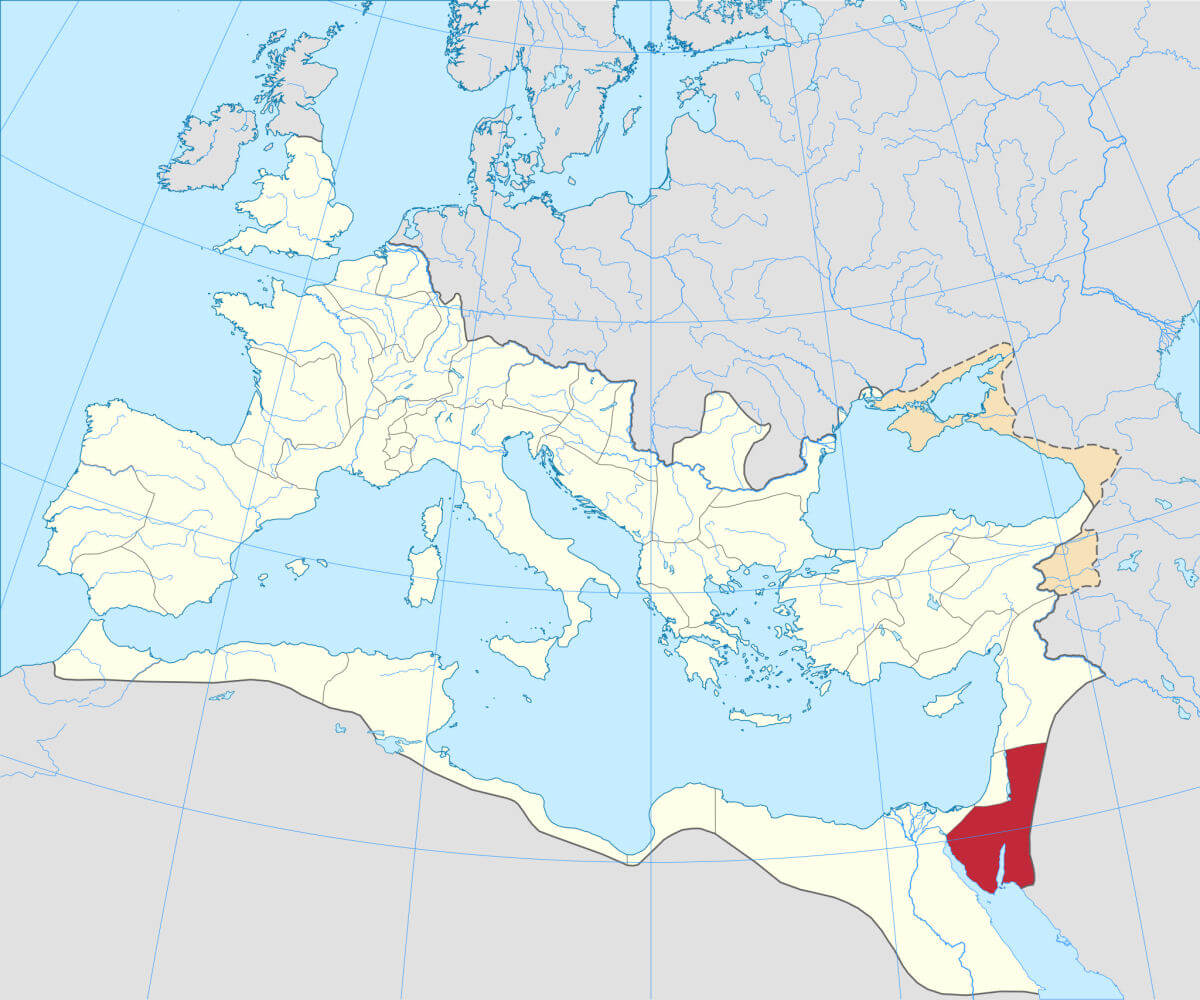To the Romans, Arabia Petraea was one of three zones that comprised the whole of Arabia (the other two regions being Arabia Deserta and Arabia Felix). In the Roman geographical sense, it was an Eastern or Hellenized province located directly to the south of Syria, bordering Aegyptus' nothern limit, and juxtaposed against Judaea (also Syria Paelestina).

A map showing the Roman province of Arabia Petraea
Milenioscuro, CC BY-SA 4.0, via Wikimedia Commons
In modern terms, Arabia is compromised of the Negev region and present-day southern Syria, Jordan and northwest Saudi Arabia. Politically and economically, the territory was relatively stable from its annexation as a frontier province by Trajan in 105 or 106 AD.
In its pre-Roman existence, this area was inhabited by Semitic people known as Arabs who specifically came from the region between Aegyptus and Mesopotamia. These Arabs can be textually noted as early as the biblical Genesis as merchants, then through Assyrian and Babylonian accounts (King Nabonidus of Babylonia campaigned in Arabia circa 550 BC). After Babylonian rule, Arabia was subjugated by another of history's great empires, the Persian Empire (through Cyrus and Darius the Great).
Autonomous rule arrived again after Alexander the Great conquered the Persian Empire and disregarded Arabia. In their autonomy, the Arabs gradually developed into Nabataea (also as the Nabataean Kingdom). For the Nabataeans, they experienced prosperity due to trade routes crossing through their land and through their prized capital, Petra. This prosperity and strategic location likely played a key influential role in the later conquest by an Empire from the West.
Yet before Rome dominated Arabia Petraea, there was a history of interaction between the two 'states'. In 62 BC, Marcus Aemilius Scaurus (briefly the brother-in-law of Gnaeus Pompeius Magnus and governor of Syria following Pompey's eastern conquest) attacked Nabataea. As a result, King Aretas III agreed to pay an annual monetary tribute to Rome, and minted coins showed King Aretas III in submission to Scaurus by means of an olive branch.
By 26 BC, another bold Roman attempt at dominating Arabia came in the form of an incursion into Arabia Felix. With support from Nabataean soldiers, the Romans still could not advance deeply into the region. Conquest had proven to be impractical, and other foreign wars would take precedence (Germania, Britannia and the Danubian frontier) for the next century and a half. Only under Trajan, and the full attention of Rome, was the conquest of Arabia finally proven achievable.
The Roman conquest of Nabataea was, at best, a dull moment in Roman history. The Romans, through the command of the Syrian Legate Aulus Cornelius Palma Frontonianus moved two legions, Legio III Cyrenaica and Legio VI Ferrata, to occupy Petra and Bostra in 106 AD. Unlike other conquests, the resistance encountered in the action was minimal. Shortly after, the Nabataean Kingdom was annexed as Arabia (the Romans did not bother to distinguish between Arabs and Nabataeans).
The Romanization of Arabia was a major prize for the Romans, since it now had a direct influence and relative control of incoming eastern trade. Another benefit of adding Nabataea to Rome's territories was that it secured the southern flank of the Roman provinces of Syria and Judaea.
Finally, under Emperor Trajan, the Romans had complete control of all accessable and important Mediteranean trade routes. Now under Roman control, Bostra replaced Petra as the capital of Roman Arabia. Meanwhile, Petra still prospered as a major trade city. Goods of all varieties, such as eastern treasures of incense, frankincense, spices, and fabrics were flowing through cities like Petra and Bostra in Arabia.
Arabia was one of Rome's most unique provinces. Throughout Roman rule, Arabia Petraea remained relatively stable, and never seems to have been a serious problem for insurrection. Arabia was, for all practical purposes, Rome's eastern trade center. Its ability to create wealth substantially helped make Rome an economic power.


